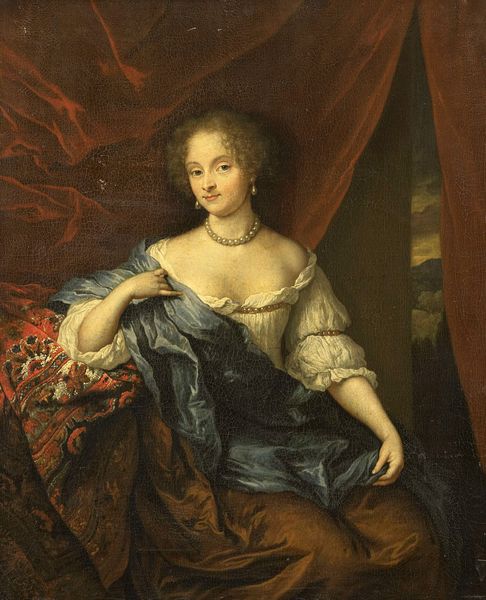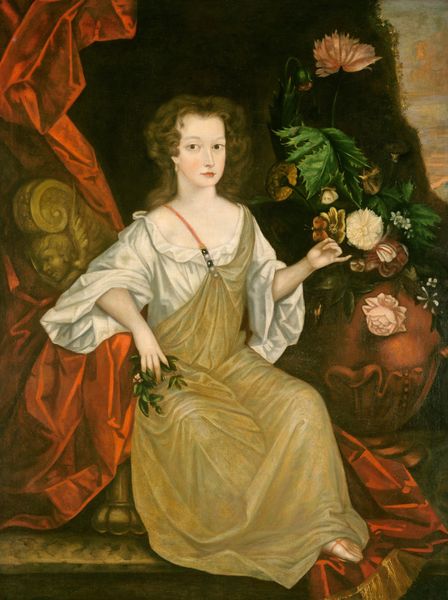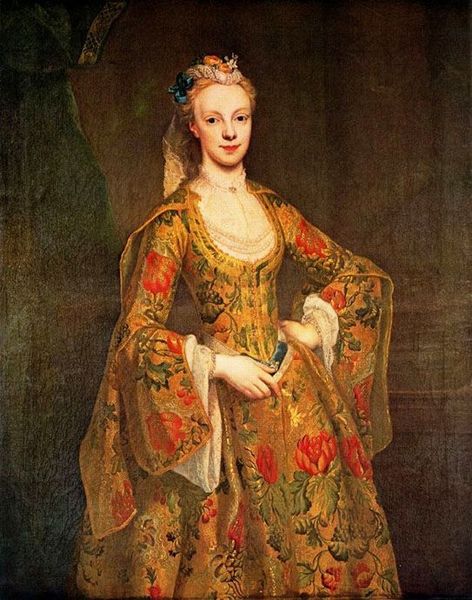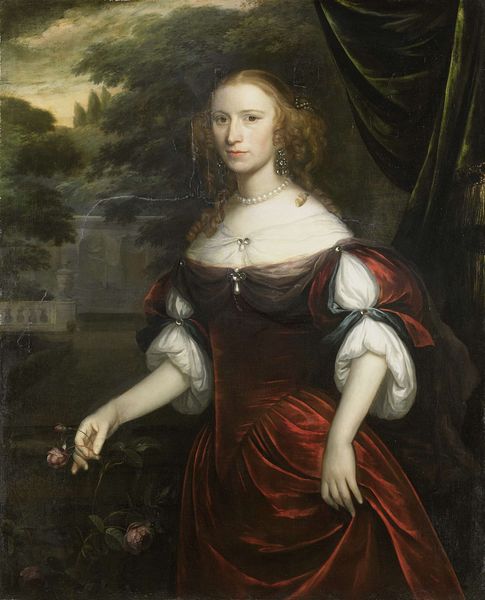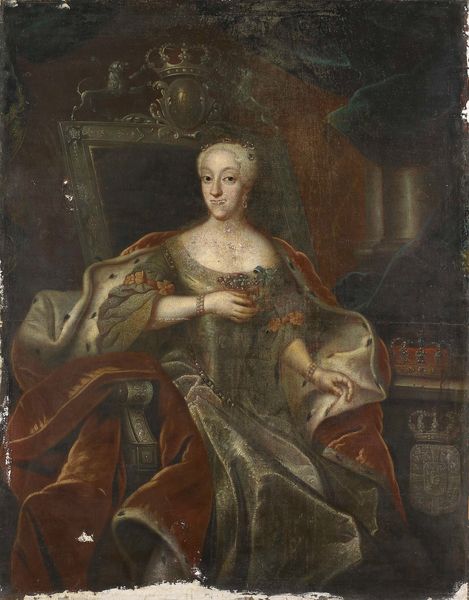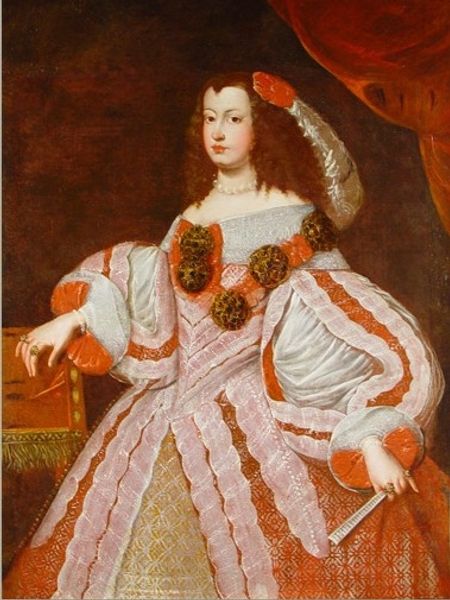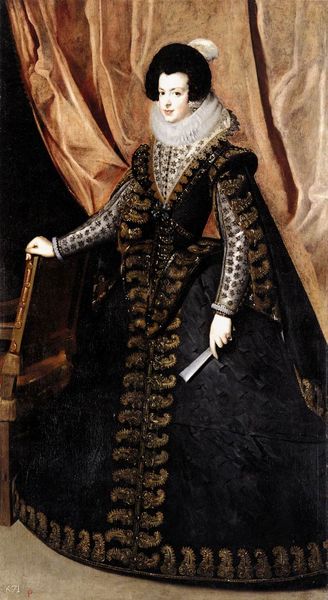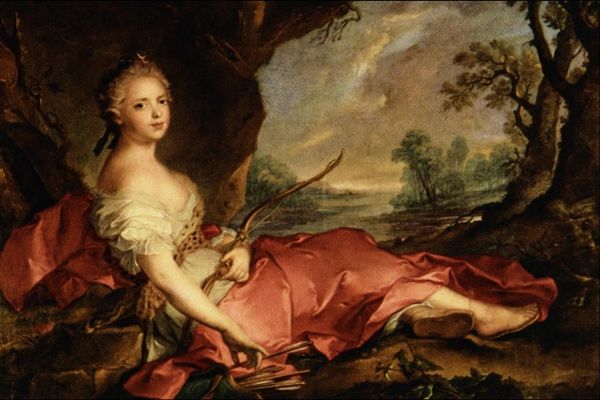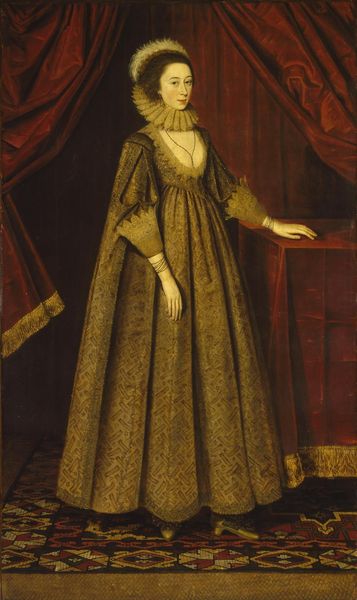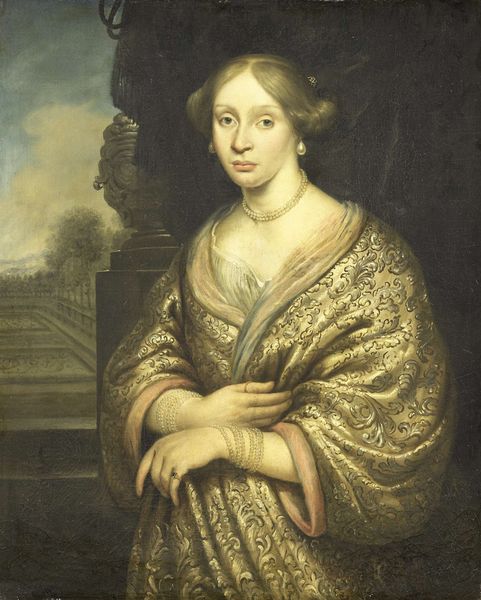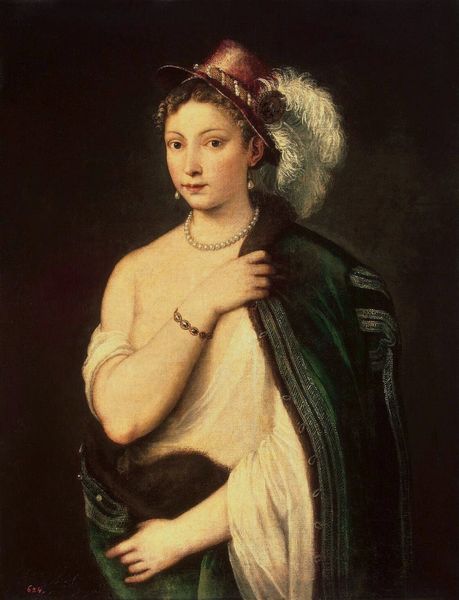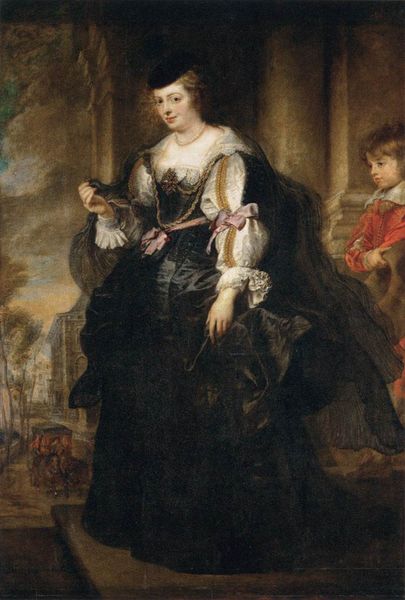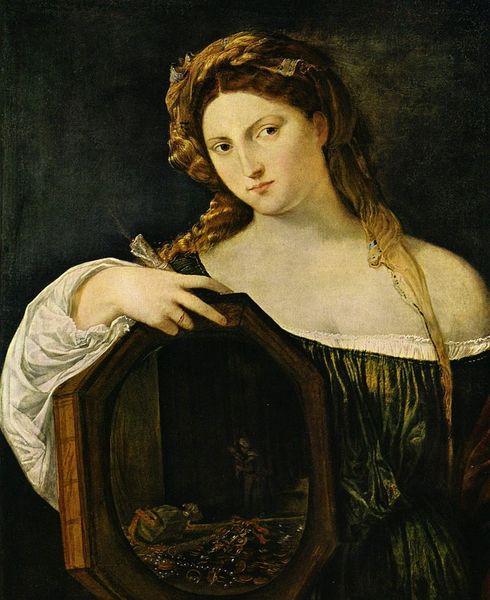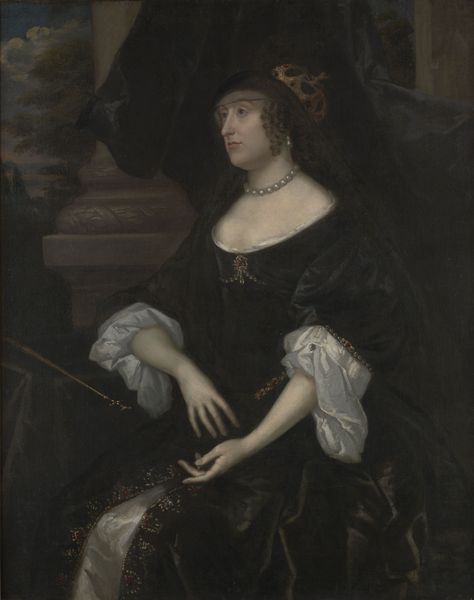
Dimensions: support: 2212 x 1370 mm
Copyright: CC-BY-NC-ND 4.0 DEED, Photo: Tate
Curator: Here we have a large-scale painting, nearly eight feet tall, entitled "Portrait of a Lady, Called Elizabeth, Lady Tanfield" from the British School of the 17th century. Editor: My first impression is of controlled opulence—the muted colours and her restrained pose give off an aura of dignity. Curator: The sheer volume of fabric, the lace, the jewels—all scream wealth, and someone would have labored extensively to produce them. The very consumption on display speaks volumes. Editor: Absolutely, and let's consider the orange tree beside her. Oranges were luxury items then, symbols of fertility, perhaps even immortality, given their association with classical mythology. It speaks to both status and aspirations. Curator: Yet there's a fascinating tension. The artist, though unknown, clearly understands the visual language of power but also hints at the material realities underpinning it. Editor: I agree; it's a portrait that rewards careful looking. The symbols whisper stories of lineage and hope. Curator: And the materials themselves proclaim a story of global trade and local production, intertwined to create an image of considerable power. Editor: Ultimately, this painting leaves me pondering the enduring power of symbols to convey complex social narratives. Curator: For me, it's the tangible weight of history embedded in the paint and textile that truly resonates.
Comments
tatebritain 10 months ago
⋮
http://www.tate.org.uk/art/artworks/british-school-17th-century-portrait-of-a-lady-called-elizabeth-lady-tanfield-t03031
Join the conversation
Join millions of artists and users on Artera today and experience the ultimate creative platform.
tatebritain 10 months ago
⋮
This portrait is thought to depict Elizabeth Tanfield (1585/6–1639). She was an extraordinary woman for her time: a poet, playwright, translator, and historian. Tanfield is the first woman known to have written and published an original play in English. From an early age she was recognised as an accomplished scholar. The painting includes several unusual features, including the flowers in her hair, the peach tree, and the lifting of her shawl as if to shield the sun. This suggests that the portrait had a symbolism and personal meaning that is now lost. Gallery label, July 2024
